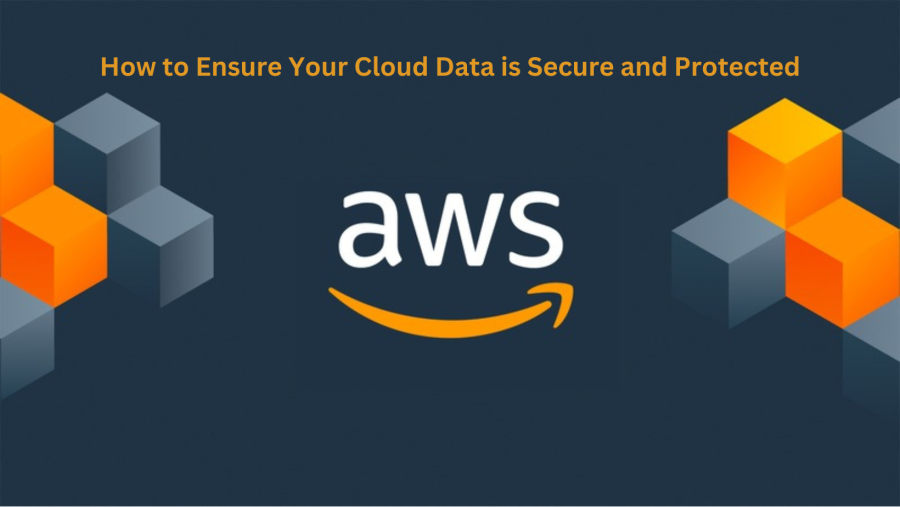As businesses look to migrate their data and applications to the cloud, understanding AWS becomes essential for safeguarding cloud data. AWS offers a secure cloud platform equipped with a comprehensive range of features designed to protect customer data.
Data Protection and Security Features of AWS
AWS provides a secure platform for storing and managing data in the cloud. AWS uses a variety of authentication, authorization, encryption, instance isolation, logging, and monitoring, auditing, and disaster recovery strategies to help protect your data. At Kelly Technologies, we are proud to offer the only AWS Training in Hyderabad that covers each and every facet of Amazon Web Services.
One important security feature of AWS is its authentication and authorization methods, which are used to grant access to resources. This includes two-factor authentication (2FA), multi-factor authentication (MFA), identity federation with third-party services such as Active Directory or SAML 2.0 compliant identity providers like Okta or Azure AD, as well as other methods such as API keys or tokens for programmatic access control.
Finally, auditing mechanisms are important for ensuring compliance with industry standards such as HIPAA, PCI DSS, FISMA, etc. Auditing processes involve tracking changes made to resources over time so that any violations of policy can be quickly identified. Additionally, disaster recovery strategies are provided by AWS via its backup features, which enable customers to back up their data on a regular basis.
In conclusion, Amazon Web Services provides an extensive set of security and compliance services, tools, and features designed to help keep customers’ stored data safe. These include encryption technologies for protecting stored information both at rest and in transit, instance isolation techniques for segmenting customers’ environments, logging and monitoring tools, auditing mechanisms, and disaster recovery strategies for backing up valuable information. With these measures in place, customers will have peace of mind knowing that their critical information is protected against unauthorized access or malicious attacks on web applications.
How to Ensure Your Cloud Data is Secure and Protected
The cloud is an increasingly popular tool for businesses and individuals alike. With AWS, businesses can store their data in the cloud with confidence. AWS provides a robust security system that helps ensure your data is safe from cyber threats and other malicious activity.
Amazon Web Services offers various layers of security to protect your data in the cloud. They provide various methods of encryption such as 256-bit AES encryption or SSL/TLS to protect sensitive information from being accessed by unauthorized personnel. Additionally, they offer fraud protection services such as two-factor authentication and identity verification to help prevent unauthorized access to accounts or services.
To maintain the highest levels of security on your cloud environment, there are several best practices that you should follow. First and foremost is regularly reviewing and updating any existing security policies associated with protecting your data in the cloud environment. You should also encrypt all stored data using encryption keys for added protection against possible breaches or malicious attempts to access sensitive information stored within the environment.
Multi-factor authentication (MFA) should be implemented for all users accessing resources within the environment, which will require users to provide two pieces of evidence when logging into any account associated with AWS services such as EC2 Security Groups, which limit access rights based on user roles assigned by administrators within an organization’s IT department. Additionally, firewalls can be installed on each server instance within AWS environments to restrict access from outside sources attempting unauthorized entry into these systems – something especially important if any customer-facing applications are hosted on them – while Amazon’s CloudTrail logging feature can be used to track API calls made by users so administrators have visibility over who has accessed particular areas of their infrastructure over time. Lastly, it is important that software patching and updates are automated where possible so they don’t become outdated or vulnerable due to regular maintenance tasks not being completed when necessary.
Finally, it’s important that organizations back up their entire infrastructure regularly so if anything ever does go wrong, there will still be a copy available either internally or externally via third-party providers like Amazon S3. By following these guidelines, organizations can make sure their data remains secure while using Amazon Web Services Cloud offering.
Conclusion
This article in Deltsa Pure should’ve given you a clear idea about the subject. Data security is a top priority for businesses, and AWS provides comprehensive tools and features to keep data safe. From authentication and authorization mechanisms to encryption technologies, instance isolation techniques, logging and monitoring capabilities, automated security tools, auditing processes, and disaster recovery plans – AWS helps ensure that your data is secure in the cloud. By leveraging these features of AWS for your business’s data storage needs, you can be sure that your valuable information is well-protected. Take advantage of all that AWS has to offer today!





